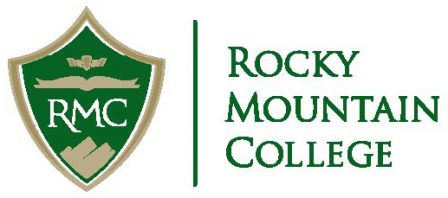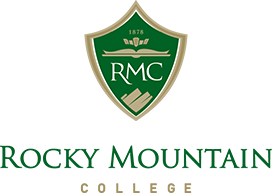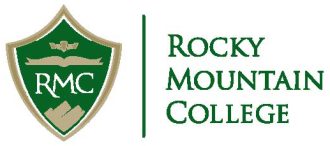Technical Standards
December 25, 2022 2024-03-24 20:13
(adapted from Murphy Deming OTD Program Student Handbook with permission)
The RMC OTD Program has a responsibility to the public to assure that its graduates are prepared to become fully competent and caring health professionals. In order to fulfill this obligation, students must safely and proficiently demonstrate the following technical standards, described below.
Technical standards refer to the physical and mental abilities, skills, attitudes, and behaviors that comprise cognitive, psychomotor, and affective domains of health care practice. A student is required to develop entry-level proficiency across all three domains of the technical standards to achieve satisfactory completion of the curriculum and to develop the qualities consistent with the professions of physical therapy and occupational therapy. Entry–level proficiency is defined as the minimum knowledge, skills, and abilities to practice legally, ethically, and safely as a licensed occupational therapist. These proficiencies are applicable in the classroom, laboratories and clinical settings.
Admission will be offered contingent on either a signed statement from the applicant that he/she can meet the program’s technical standards without accommodations, or a signed statement from the applicant stating the belief that he/she can meet the technical standards if reasonable accommodations are provided. Rocky Mountain College graduate student Section 501/ADA Coordinator will evaluate a student who states that he/she could meet the program’s technical standards with accommodations and confirm that the stated condition qualifies as a disability under applicable laws.
At RMC, the Disability Services Coordinator is Lisa Laird. Her office is located in the Fortin Education Center (Room 128), and she can be contacted at the following:
Phone: 406.657.1129
Fax: 406.657.1037
Email: lisa.laird@rocky.edu
Rocky Mountain College graduate student Section 504/ADA Coordinator and the OTD Program will jointly decide which accommodations are suitable or possible without fundamentally altering essential functions established by the program. An offer of admission may be withdrawn and/or a student may be dismissed for any of the following reasons: It becomes apparent that the student cannot meet technical standards, even with reasonable accommodations; the needed accommodations are not reasonable because they would cause undue hardship to the College; granting the accommodations would compromise technical standards, jeopardize patient/client safety or alter the educational process of the student or the institutions, including all coursework and internships deemed essential to graduation.
Students and candidates for admission to the OTD program will be required to verify that they have the ability to meet the following standards:
Cognitive Learning Skills
The student must demonstrate the ability to:
- Conceptualize a sequential progression of tasks and / or standardized testing and make objective conclusions based on the test results.
- Apply critical thinking in the creation, development, generalization and implementation of adaptations to normative methods of behavior and function.
- Demonstrate an understanding of the basic anatomical structures and physiological mechanisms that underlie conditions of human dysfunction and occupational performance.
- Analyze the sequential steps, cognitive skills and motor performance of specific functional tasks relevant to the safety, environment and developmental life tasks of a patient / client. This analysis should also take into account ethnic background, gender and cultural variables.
- Select constructive activities suited to an individual's current physical capacity, intelligence level, and interest, so as to upgrade the individual to maximum independence, prepare for activities of daily living and appropriate life tasks, assist in restoration of functions and / or aid in adjustment to disability.
- Assess and identify cognitive and functional deficits, and determine adaptive or compensatory methods of functioning.
- Apply critical reasoning and independent decision-making skills.
- Assess patient / client safety and maintain or create safe environments during specific tasks, to enhance patient/client independence in a variety of potential environments.
Psychomotor Skills
The student must demonstrate the following skills:
- Sitting: Maintain upright posture.
- Standing: Student-controlled activity employable during lecture, clinical instruction and laboratory time.
- Locomotion ability to:
- Get to lecture, lab and clinical locations, and move within rooms as needed for changing groups, partners and work stations.
- Physically maneuver in required clinical settings, to accomplish assigned tasks.
- Manual tasks:
- Lifting ability sufficient to maneuver an individual's body parts effectively to perform evaluation and treatment techniques.
- Manipulate common tools used for screening tests and therapeutic intervention of the individual.
- Demonstrate the ability to safely and effectively guide and facilitate patient / client movement skills and motor patterns through physical facilitation and inhibition techniques (including ability to give time-urgent verbal feed back).
- Manipulate or guide another person's body in transfers, ambulation, positioning and assisted or facilitated trunk, head and limb movement.
- Manipulate bolsters, pillows, plinths, mats, assistive/adaptive devices, and other supports or chairs to aid in positioning, moving, or treating a patient / client effectively.
- Competently perform cardiopulmonary resuscitation (CPR) using guidelines issued by the American Heart Association or the American Red Cross.
- Gross motor ability to participate in recreational or movement activities that may involve tossing, catching, weight shifts, reaching, balancing on equipment, etc.
- Small motor / hand skill usage ability to:
- Legibly record/document evaluations, patient care notes, referrals, etc. in standard medical charts in hospital / clinical settings in a timely manner and consistent with the acceptable norms of clinical settings.
- Demonstrate or complete activities or tests with adequate degree of fine motor dexterity.
- Sense changes in an individual's muscle tone, skin quality, joint play, kinesthesia, and temperature to gather accurate objective evaluative information in a timely manner and sense that individual's response to environmental changes and treatment.
- Legibly record thoughts for written assignments or tests.
- Visual acuity to:
- Read patient/client charts or histories in hospital / clinical setting.
- Observe even the slightest aberrations of patient / client motor performance during tasks/tests.
- Hearing or ability to receive and:
- Effectively respond to oral requests/instructions from patients and team members.
- Interpret the language used to communicate lectures, instructions, concepts, narratives, questions and answers.
- Auscultate for internal body sounds, e.g., heart, bowel, lungs.
- Communication ability to:
- Effectively communicate with team members.
- Articulate detailed instructions to patients, caretakers, family or other clinical personnel.
- Self-care ability to:
- Maintain general good health and self care in order not to jeopardize the health and safety of self and individuals with whom one interacts in the academic and clinical settings.
- Arrange transportation and living accommodations for / during off-campus clinical assignments to foster timely reporting to classroom and clinical center.
Affective Learning Skills
The student must be able to:
- Demonstrate appropriate, affective behaviors and mental attitudes to ensure the emotional, physical, mental, and behavioral safety of the patient / client in compliance with the ethical standards of the American Occupational Therapy Association.
- Sustain the mental and emotional rigors of a demanding educational program in occupational therapy that includes academic and clinical components that occur within set time constraints, and often concurrently.
- Acknowledge and respect individual values and opinions in order to foster harmonious working relationships with colleagues, peers, and patients / clients.
Ability to meet these Technical Standards is required for admission and must also be maintained throughout the student’s progression in the program. In the event that a student is unable to fulfill these technical standards, with or without reasonable accommodation, then the student may be asked to leave the program.
Contact
Top Floor
Charles Morledge Science Building


